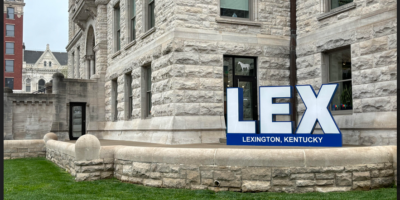By Marcus Flores
I spent my honeymoon in Curacao, an island in the southern Caribbean quite near Venezuela. Flying by commercial airline in the post-9/11 era entails security procedures that, while mildly inconvenient to some (my wife, for example), constitute civil rights infringements to others. As a libertarian, I think I needn’t bother saying to which camp I belong.
Perhaps it comes with the ideology, but I am also not scared shitless of the .00000004% chance of dying in a terrorist attack. No, what unnerves me is the chance that some drunken airline mechanic fails to notice a leaky hose, or that a recently divorced pilot brings his distractful personal baggage with him into the cockpit. (I am not at all reassured by the National Transportation Safety Board (NTSB) report on the Comair Flight 5191 disaster, which listed small talk among the factors that led the pilot down the wrong runway at Bluegrass Airport in 2006.) In short, I hope that more attention is directed at preventable dangers rather than the guy with the beard.
Until my Curacao trip, I had been lucky enough to avoid those airports that fully utilize the wretched body scanners—never needing to submit my non-confrontational disposition to the awkward but necessary task of trying to defend my rights. At least to maintain the semblance of respect, a sign at Louisville International Airport notifies you that the scanning procedure is “optional,” meaning you can forego the nude photo op for…what, exactly? I asked, only to learn that a pat down would substitute. Being on my honeymoon, I decided I did not want the first foreign hands on me to be those of some imp of the government. So, my battle lost, into the scanner I went.
The procedure was harmless, I think. Or maybe thousands of frequent flyers will someday develop brain tumors only explainable by the time spent discounting them as terrorists. Not that the Transportation Security Administration (TSA) has been particularly effective in that endeavor, having ensnared a slew of grannies, disabled children, and a U.S. Senator while missing the shoe and underwear bombers. I was later struck by the idea that maybe the most dangerous area in the airport is right there awaiting security screening. Exactly nothing stops a smartly dressed mad man from strolling into the “secure area” and detonating himself before reaching a single TSA agent. Such attacks, remember, are not without precedent (see the bombing of Domodedovo Airport in Moscow, in January 2011).
Since 9/11, popular attitudes now also serve as a deterrent to airline hijackings. Richard Reid, the shoe bomber, could barely light a match before he was swarmed and hogtied by flight attendants and passengers. Similarly, a Dutch passenger hurdled rows of seats to subdue Umar Farouk Abdul Mutallab, whose pathetic attempt at terrorism likely ended with his scorched groin as the only casualty. Airliners no longer seem that conducive to terrorism simply because passengers refuse to go quietly; it is an attitude every American ought to carry with him wherever he goes.
In the events that transpired following the Boston Bombings, I began to wonder why that same rage against victimization was conspicuously absent. A little chaos following the explosions can be attributed to basic human physiology—loud sounds trigger the startle reflex in most mammalian species. The security response to the attack, however, seemed fashioned to induce more panic than the bombs themselves. Taxi services were suspended, subways stalled. Workplaces ground to a halt. A no-fly zone was established. A Black Hawk helicopter circled the city. It makes one wonder if Gov. Deval Patrick hadn’t borrowed his disaster script from Don DeLillo and inserted Rambo as a villain.
Except it was not Sylvester Stallone or anyone nearly as fearsome. The surviving suspect is a curly headed loser who happened to rig a pressure cooker to explode—not a feat beyond anyone with a high school education and a local hardware store. Then, after the suspect had been apprehended, President Obama said the bombers failed because the city of Boston had “refused to be intimidated.” What is intimidation, if not two days of martial law? Boston’s paralysis proved that even when terrorists fail, we ensure they succeed by cowering in fear; instead of respectfully morning the victims, we disgrace them by surrendering more rights. Even when the casualty count is zero—as was the case with Richard Reid and Umar Farouk Abdul Mutallab—new policies force us to remove our shoes and submit to digital strip searches.
Now, there are already calls for more public surveillance following the events in Boston. I specifically mention GOP Representative Peter King who said cameras, which aided in identifying the suspects, enable us “to stay ahead of the terrorists.” Imagine those same TSA agents who overlook explosives and weapons set before a slew of screens, monitoring millions for misplaced backpacks in NYC.
At the end of the day, I prefer the occasional terrorist to the surveillance state.




Michelle Mazano
I just read this in the print version of the publication and I have to say that it was pretty sad. This is another opinion piece based on small knowledge of what aviation security really entails. I want to talk about the attitude that stood out to me most and that is the last sentence: “At the end of the day, I prefer the occasional terrorist to the surveillance state.” First of all, if you have not lost a loved one to a terrorist attack then you have no right to say this. Who the hell are you to decide that “the occasional terrorist” is OK? That it is acceptable or tolerable? It’s an insult to anyone who has been the victim of or is the relative of someone who has died or is the victim of a terrorist attack. It’s really easy to say what you prefer when you haven’t had your leg blown off or spent 45 minutes riding on a plane that you know is hijacked and may end up crashing into a building because your loved ones tell you on a phone that two other planes have met that fate.
TSA recently decided not to implement the updated rule of allowing knives because apparently they received some uproar and flack about it from airlines and airline employee unions. Many of those people care. Many of the flight attendants, pilots and families care about aviation security and appreciate having a last line of defense in TSA. So, while you are talking about what you don’t like about airport security, think about how many people who work on a plane everyday appreciate the screening.
Marcus Flores also makes the statement about beards as though aviation security only focuses on what I assume he is alluding to as Arabic people. This is untrue and it is unfair that the public and writers continue to assume that workers within the aviation security industry only focus on Arabic looking people. The truth is that contrary to popular belief, these agencies have realized that there is no specific look that a terrorist has and that just because a person is Arabic doesn’t mean they are a terrorist. So, if folks want to keep playing that card of aviation security agencies promoting profiling then by all means continue the cheap attack.
Another issue is the claim that TSA “missed” the underwear bomber and Richard Reid. TSA did not miss anything in these cases. The “Underwear Bomber” flew into the U.S. on an international flight as did Richard Reid. So, why incorrectly associate TSA to this? Of course, it must be the fault of the people who are actually trying to help, huh?
Marcus
Michelle,
I thank you for your comment. I have the right to say I prefer the occasional terrorist attack to the surveillance state because it is my opinion. Are you suggesting that, in order to have a valid opinion on the issue of terrorism at all, I must first have had my leg blown off?
I am sure that being stuck on a hijacked airline is one of the scariest things imaginable, just like being in a plane nose diving toward the ground at 400 miles an hour due to a mechanical failure. But do I let either of those possibilities—the odds of which are roughly 1 in 20 million—stop me from flying? In other words, do I still leave the house every day knowing I could be killed in a car accident or struck by lightning? Absolutely. I enjoy my freedom and don’t constantly fret about the fact that I could die at any minute.
But by graphically describing terrorism (legs blown off, etc.) you create a strictly emotional appeal to support the TSA. You may as well have protested abortion by showing me pictures of an aborted fetus. (Moreover, you speak for the entire population of flight attendants and pilots and their families as if you personally represent them. I, at least, only spoke of my own opinion.) Anyway the TSA agents are not the “last line of defense.” Setting aside the fact that pilots can now carry guns in the cockpit, a precedent was set by those brave individuals of Flight 93 who elected to revolt against the hijackers. No US government agency was there to do that for them, just like with the shoe and underwear bombers. I think you should meditate on Thomas Paine’s quote from September 11th, 1777: “Those who expect to reap the blessings of freedom, must, like men, undergo the fatigues of supporting it.”
You clarified something about the shoe and underwear bombers, yet your point only suggests that, well, if a terrorist really wants to harm the US, all he has to do is board a flight from a country where the United States cannot control security procedures. The issue I’m arguing against is that our freedoms have been steadily eroded since September 11th. We have responded to the threat of terrorism with the Patriot Act, “enhanced” airport security, increased monitoring of the cyber world, and so on—only to have the terrorists elude us like at Boston and Ft. Hood. The US “No-fly list,” for example, puts some passengers in the Kafka-esque position of not knowing why they’re on the list in the first place and furthermore provides no legal way to get off of it. This list separates families and strands passengers. So I ask, should we avenge the dead by taking rights from the living?
So long as we are engaged in a global “War on Terror,” we should expect the occasional terrorist attack on the United States. It’s not “OK”—it’s a tragedy. But in my opinion the bigger tragedy is surrendering our rights in the name of safety. That allows terrorism—the result of which is fear—to succeed in governing our lives.
Marcus